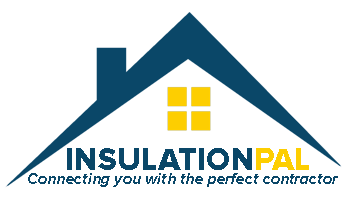Residential thermal insulation plays a vital role in maintaining a comfortable living environment while also contributing significantly to energy savings. In an age where energy costs continue to increase, discovering cost-effective ways to protect your home can make a notable difference in your monthly bills and overall energy consumption. This guide will walk you through everything you need to know about home insulation, from understanding R-values to selecting the right materials for your specific needs.
Regardless of whether you are a homeowner looking to enhance your property's energy efficiency or a DIY enthusiast prepared to tackle insulation projects, this detailed resource will help you make informed decisions. We will discuss common pitfalls, the benefits of proper insulation, and how to review the current state of your home’s insulation. By the end of this manual, you will be equipped with the knowledge to ensure your home is not just cozy but also a smart investment for the future.
Grasping Home Insulation
Home insulation is essential in ensuring a cozy living environment and enhancing energy efficiency. Insulation contractor acts as a buffer to heat flow, keeping your home hot in winter and cool in summer. By minimizing the movement of heat, insulation helps you cut back on energy bills and diminishes the strain on your heating and cooling systems. Understanding the value of insulation is the first step toward achieving a much energy-efficient home.
Multiple forms of insulation materials are accessible, each with unique properties and benefits. Common options include fiberglass panels, foam boards, and cellulose insulation. When picking insulation, it's important to take into account the R-value, which measures thermal resistance. A higher R-value indicates superior quality insulation performance. The right choice depends on your local climate, the part of the house you are insulating, and your budget.
Another vital aspect of insulation is the necessity of air sealing. Though the top insulation can underperform if there are gaps and leaks allowing air to escape or enter your home. Fixing these gaps will enhance the efficiency of your insulation and cut energy waste. Well-installed insulation not just contributes to lower utility bills but also better indoor air quality and overall home comfort.
Choosing the Best Insulation
Selecting the right insulation material for your home is important for improving energy efficiency and comfort. One of the primary considerations is the kind of insulation—panel or loose-fill. Batts insulation, often made of synthetic material, comes in predefined panels, making it easier to install for DIY endeavors. On the other hand, loose-fill insulation offers enhanced coverage, particularly in difficult-to-access areas, as it can fill voids and voids more thoroughly. Understanding your home's specific insulation needs will help you arrive at a more informed decision.
Another vital factor is the R-value, which evaluates the insulation's resistance to heat flow. A higher R-value indicates superior insulating performance. A newcomer's guide to R-values can help homeowners assess their local climate and local energy codes to determine the optimal level of insulation needed. Remember that different zones of your home may require different R-values for optimal performance. Therefore, a detailed evaluation of your insulation needs will ensure you pick materials that provide the best value.
In conclusion, considering the insulation's eco-friendliness and longevity should guide your choice. Some materials, like spray foam, provide remarkable energy-saving benefits but may have a greater environmental footprint. On the flip hand, eco-friendly options can be found, such as cellulose or wool, which also offer good insulation characteristics. Evaluating both energy savings and environmental impact will help you opt for insulation that benefits your home, your finances, and the Earth.
Thermal Insulation Maintenance and Enhancements
Regular maintenance of your home thermal barrier is essential for securing its effectiveness and lifespan. Commence by performing regular inspections of your insulative material, monitoring evidence of deterioration, moisture damage, or vermin issues. It's essential to check locations where the insulation may have settled, contracted, or been disturbed, especially in lofts or crawl spaces. By catching these concerns early, you can stop further deterioration and sustain your home's energy-saving capabilities.
Enhancing insulation should be evaluated if you see higher energy bills or unstable temperatures throughout your house. Contemporary insulation products offer enhanced performance relative to previous options, and putting money into better R-value insulation can significantly improve thermal resistance. Moreover, explore adding air sealing techniques around glass openings, entryways, and other drafts before improving insulation. This strategy ensures that you enhance your insulation's performance and create a more enjoyable living area.
Lastly, remaining informed about the most recent insulation innovations can also provide budget-friendly solutions for your home. https://insulation-pal842.technetbloggers.de/heat-advancements-state-of-the-art-substances-for-a-cozy-dwelling like spray foam and high-performance fiberglass batts can provide enhanced air sealing and insulating effectiveness. Look into local building codes that may encourage improvements for efficiency, as well as financial incentives or rebates provided for insulation enhancements. A proactive approach to insulation upkeep and upgrades can lead to significant cost savings and enhance a eco-friendly home.

